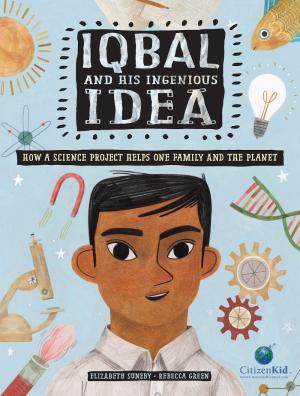
Iqbal and His Indigenous Idea: How a Science Project Helps One Family and the Planet
Monsoon season is the rainiest in Bangladesh, and it is during a severe rainstorm that readers meet Iqbal and his sister Sadia. They live in a world where the primary role of women and young girls is to care for the family, which includes gathering firewood and cooking. Iqbal soon realizes that his mother and baby sister are getting sick from the smoke produced by cooking indoors over an open flame. Armed with this realization, Iqbal is determined to create and enter a sustainable design to win the cash prize in his school district’s science competition. Earning this money will enable Iqbal to buy a propane-burning cook stove for his mother, which would reduce the family’s health problems and decrease the amount of firewood needed.
Books act as mirrors to reflect our students and windows to provide access to new and different worlds. Iqbal and His Ingenious Idea is a picture book that flawlessly performs the roles of both mirror and window. In this book, racialized students will have the opportunity to see themselves to be as competent and capable as the main character, Iqbal. The book can be used with students in grade 3 and up. The illustrations are enormous; they tell much of the story and provide many opportunities for students to make inferences, draw conclusions and ask questions. During the initial reading, I found myself asking aloud: “Where are the girls? Why are the women responsible for that work? Why are the men not helping?” The book provides glimpses into a world of traditional gender roles. With student-generated questions, it also serves as the foundation for inquiry-based teaching and learning into real-world problems students may be interested in tackling.
Iqbal and His Ingenious Idea connects to the fundamental concepts of energy, sustainability and stewardship in the science curriculum for grades 5 and 7. It is an excellent resource for Grade 8 students to highlight the big idea about issues related to the inequalities in global development and quality of life that can have social, environmental, political, and economic implications.
Dian Baker is a member of the Elementary Teachers of Toronto.